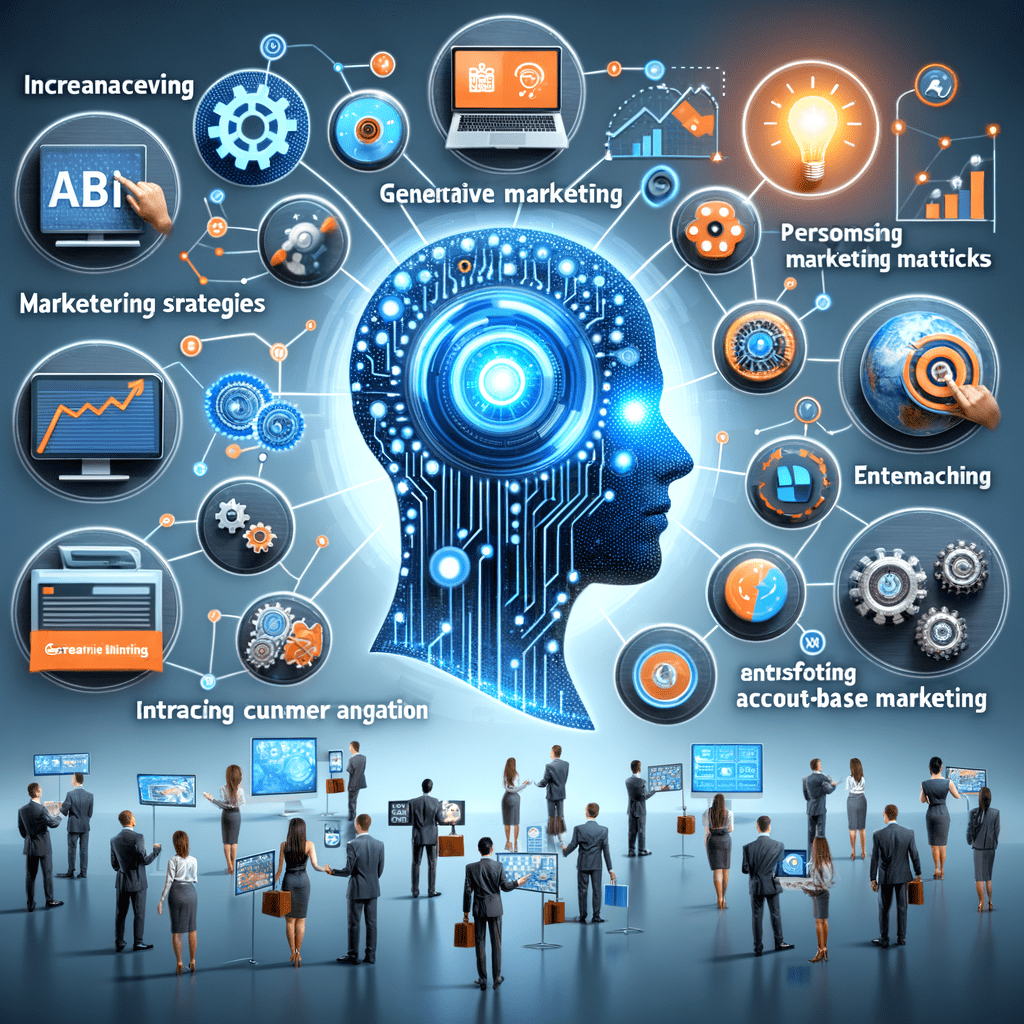Are you curious about how generative AI marketing use cases are transforming businesses? This technology is rapidly changing advertising, content creation, and customer experience. This post explores practical generative AI marketing use cases and their potential benefits. We’ll also look at real-world examples of generative AI models. I’ve witnessed a shift toward AI-driven solutions as businesses explore new possibilities using AI tools.
Generative AI Marketing Use Cases
Less than 15% of companies currently use generative AI in marketing. However, adoption is expected to explode. This technology offers various tools to automate marketing tasks, personalize customer interactions, and gain customer insights.
Content Creation and Optimization
Generative AI can create copy in various content formats. These range from ad copy and social media posts to blog articles and product descriptions. AI brings benefits to content marketing, allowing marketing teams to refine existing content for SEO, translate text, generate videos, and compose music.
Concerns exist because content generation relies on data sets. Generative AI tools present risks for plagiarism and other issues. These include copyright infringement and piracy. Human oversight of these processes is critical.
Personalization at Scale
Artificial intelligence and learning models have made personalization more efficient. Generative AI can analyze customer data such as preferences, purchase history, and online interactions. This creates unique customer profiles, facilitating individual consumer engagement.
These detailed customer insights allow marketers to target audiences more effectively at each stage. It transforms static marketing into engaging individual consumer experiences.
Carvana, for example, created 1.3 million personalized videos quickly using gen AI models. This innovative marketing campaign provided highly targeted customer experiences. It integrated product and individual buyer-specific factors.
Enhanced Customer Engagement
Generative AI can power conversational chatbots. These chatbots can hold human-like conversations, answer questions, and resolve issues. Sentiment analysis gives them contextual sensitivity. This enables more appropriate responses than scripted chatbots.
Studies show that customer service tasks improve with generative AI. It increases efficiency and customer satisfaction.
Market Research and Data Analysis
Generative AI is changing marketing by streamlining data collection. It interprets large data sets, reveals patterns, and interprets data across platforms. This includes competitor web traffic and buyer intent from search data. This helps refine customer segmentation.
Generative AI empowers market researchers to use predictive forecasting. Based on historical data, it identifies trends and optimizes resource allocation for campaigns.
Improved Product Discovery
Generative AI offers numerous product discovery benefits. Integrating customer data makes search queries more intelligent. Customer search intent reveals valuable user preferences. This drives more relevant product results.
Generative AI also personalizes customer journeys. It suggests optimal channels based on buyer response data. It also identifies and optimizes underperforming campaign aspects.
FAQs about generative ai marketing use cases
How is generative AI used in marketing?
Generative AI has many marketing applications. It creates a variety of content and automates workflows. It can also accelerate customer service inquiries, creating personalized content and customer journeys. Other benefits include revealing customer search preferences and facilitating A/B testing to optimize ad campaigns. It also automates market analysis to gain data insights from competitor campaigns and product demand.
What are the use cases of generative AI?
Generative AI tools are used throughout the entire marketing process, supporting marketing teams and assisting lead nurturing across channels using customer data analysis for personalized content.
It helps with the ideation, development, personalization, and targeting of content plans. It also analyzes product interest, enhances engagement using customer feedback, and facilitates translations.
It can also improve the efficiency of customer service interactions, enabling support agents to resolve customer issues. Finally, generative AI helps with the creation of hyper-relevant local ads by using dynamic content personalization.
What is a real life example of generative AI?
Heinz used generative AI for its “Heinz A.I. Ketchup” campaign. This showcased AI image generation in brand marketing using DALL-E2. This AI model, trained on real-world images, generates realistic image outputs. Following Heinz’s lead, other food companies have used generative AI for product promotions.
These products include Oreo cookies, Cadbury chocolates, and candy. Generative AI allows companies to scale content and optimize marketing campaigns. They can do this across multiple languages with less cost and faster innovation development cycles.
How to use ChatGPT for marketing?
ChatGPT, a form of generative AI, assists with marketing tasks like brainstorming, researching, outlining, writing, and editing. It also helps develop customer personas and repurpose existing content. Using text-based queries, marketers generate custom text formats. They can also ask and receive answers to various marketing questions.
ChatGPT supports sales through real-time suggestions. During calls, sentiment analysis can detect reactions. Predictive analysis suggests important conversation topics. This allows email campaigns to benefit from improved response rates through data-driven decision-making and customer targeting with task-specific data.
Concluding Insights on Generative AI for Marketing
Generative AI marketing use cases offer immense potential. They can improve targeted content creation, personalized customer journeys, trend analysis, and operational efficiency. They can also help create high-performing products and scale promotion campaigns quickly.
Using generative AI responsibly is important. This includes being aware of ethical considerations and customer expectations. Generative AI augments human efforts and leverages real-time data. This creates customized, customer-centric marketing.
Companies that ignore these tools risk falling behind. Competitors that leverage generative AI can achieve greater ROI compared to traditional methods.






